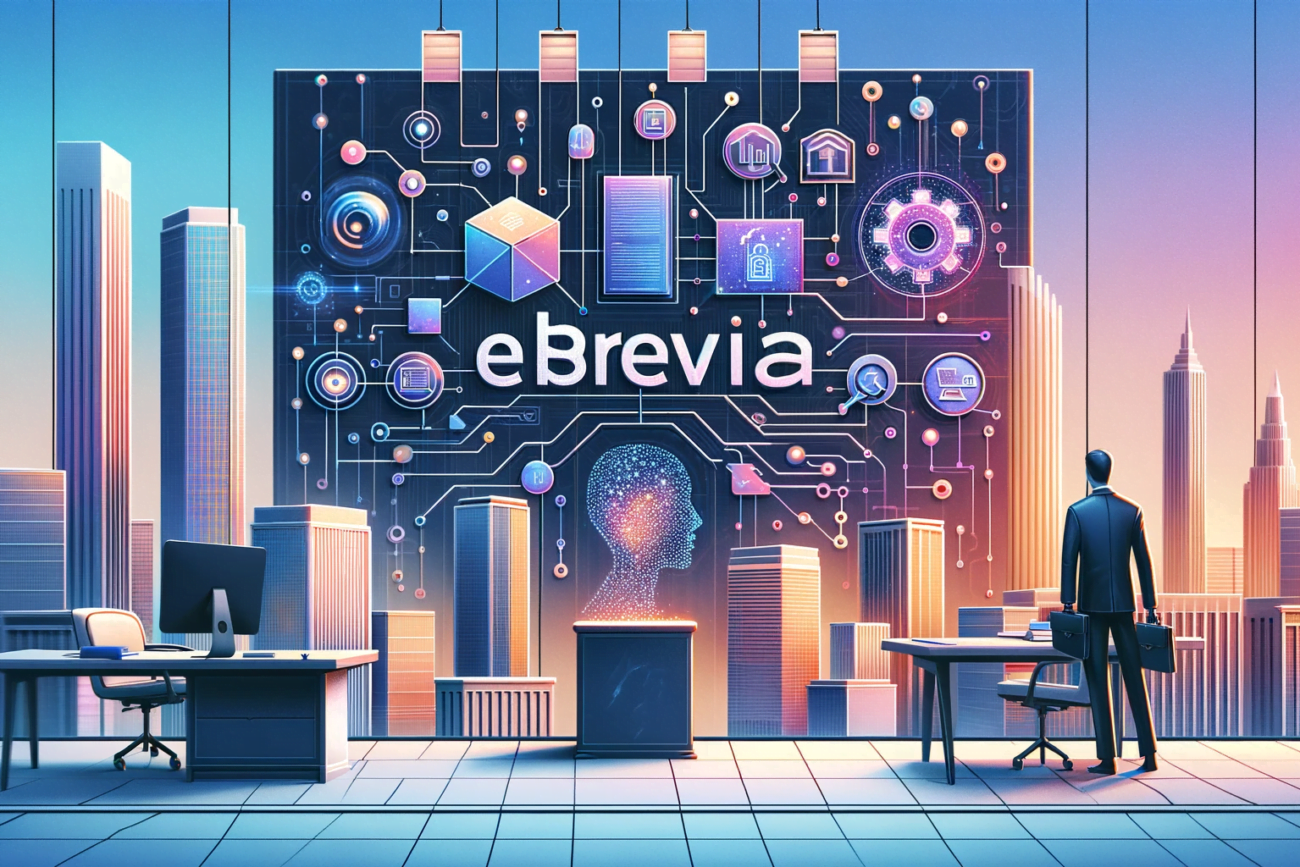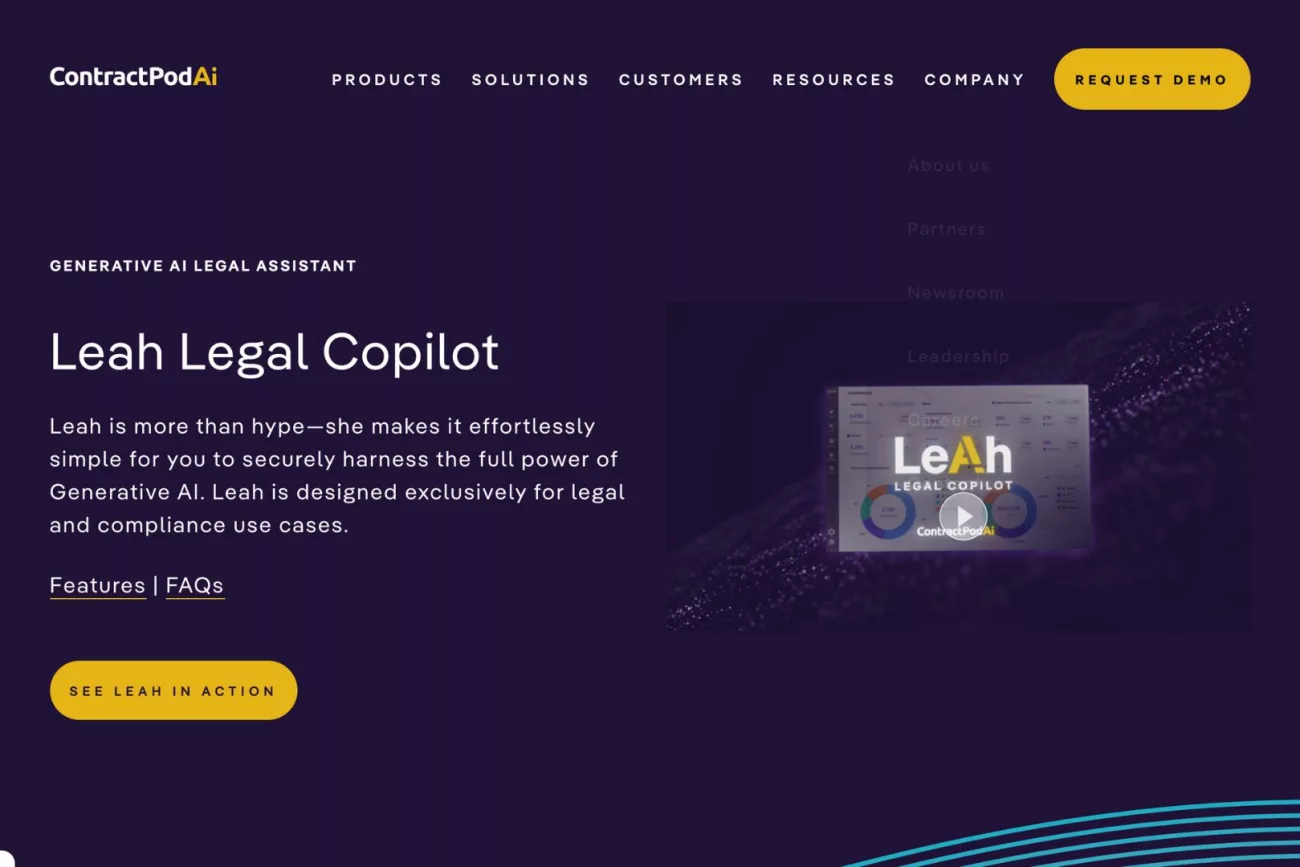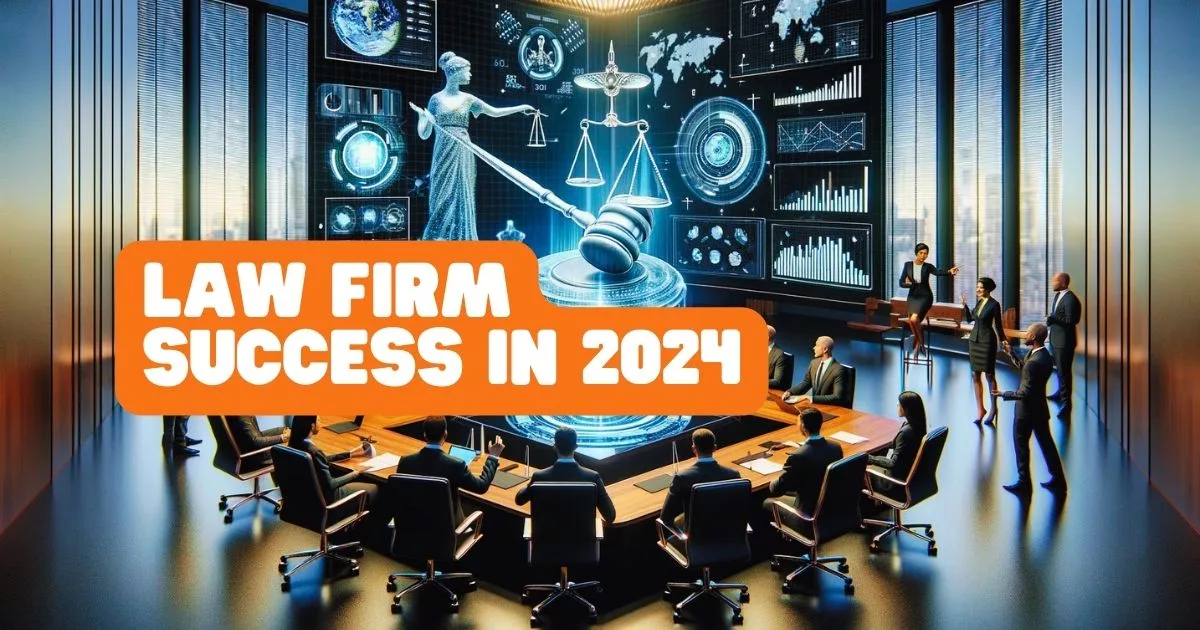
Key Insights
- Solve Intelligence’s Emergence: Examines the rise of Solve Intelligence as a major player in legal tech, potentially reshaping patent law with AI.
- Ethical and Privacy Concerns: Highlights the ethical dilemmas and privacy issues surrounding AI in legal tech, particularly in IP law.
- Efficiency vs. Quality: Discusses the efficiency improvements claimed by Solve Intelligence’s AI tool and debates its impact on the quality of patent applications.
- Future of Legal Tech: Contemplates the future of legal tech as AI becomes more prevalent, posing the question of whether this will lead to a utopian or dystopian scenario in legal practices.
🔥 NYC’s AI Law Exposed! What Harry Potter Knew First…
Dive into NYC’s groundbreaking AI hiring laws, the magical interplay of AI & Harry Potter,
Chief Justice Roberts’ Testimony Shocks Legal Industry: The Legal Hiring Market Will Never Be the Same Again!
Key Points: Chief Justice Roberts’ testimony has sent shockwaves through the legal hiring market Ethical
⚖️ Profit Paradox, AI Showdown & LexisNexis’ Game-Changer!
Explore the latest in law: the mystery of mid-size firms’ success, the legal battle between
The Dawn of a Legal Tech Colossus
In the fast-evolving world of legal tech, a new gladiator enters the arena: Solve Intelligence. Is it a beacon of innovation or a privacy intruder in disguise? 🌟
In the dynamic and often unpredictable realm of legal technology, a new protagonist emerges, challenging the status quo and sparking a firestorm of debate. Meet Solve Intelligence, a Delaware-based startup that’s not just joining the fray in legal tech but is poised to redefine it.
But here’s the million-dollar question: Is Solve Intelligence the harbinger of a new era in legal technology, or does it mask deeper concerns about privacy and ethical boundaries in the field of intellectual property (IP) law?
As we navigate this complex and multifaceted narrative, we must scrutinize every angle, from the revolutionary potential of Solve Intelligence’s technology to the looming shadows of privacy and ethical implications.
The Genesis of Solve Intelligence
Founders’ Backstory: The Trio’s Tech Odyssey 🚀
- Sanj Ahilan, Chris Parsonson, and Angus Parsonson: This triumvirate of tech visionaries, each with a unique story, embarked on a journey that would take them from the inner sanctums of tech behemoths to the forefront of legal tech innovation. Their collective experience at global technology leaders like Huawei and Dyson provided them with firsthand insight into the intricacies and frustrations of the patenting process. This odyssey was not just about change but about revolutionizing an entire industry.
- From Frustration to Innovation: The genesis of Solve Intelligence was rooted in a shared frustration: the complex, time-consuming, and often labyrinthine process of securing patents. These three pioneers, equipped with their rich background in tech and a deep understanding of the flaws in the patenting process, saw an opportunity. They envisioned a world where technology could simplify, streamline, and democratize the patenting process, making it more accessible and efficient for everyone involved.
Funding Frenzy: The $3 Million Question 🤑
- Investor Spotlight: When Y Combinator, Amino Capital, and a consortium of other heavyweight investors decided to inject a whopping $3 million into Solve Intelligence, the legal tech world took notice. This wasn’t just funding; it was a resounding vote of confidence in the potential of Solve Intelligence to disrupt and transform the legal tech landscape. But this influx of capital also raises critical questions: What are the implications of such significant funding on the future trajectory of legal tech ethics? How will this financial backing influence the strategic decisions and ethical considerations of Solve Intelligence?
- The Ethical Quandary: With great funding comes great responsibility. The injection of $3 million into Solve Intelligence isn’t just about fueling growth; it’s about shaping the future of an industry at the intersection of technology, law, and ethics. This financial backing puts Solve Intelligence at a crossroads: Will they prioritize innovation at the expense of privacy and ethical considerations, or will they navigate this path with a keen sense of responsibility and foresight?
The Patent Revolution
Patent Paradigm Shift or Perilous Path? ⚖️
- The AI Edge: At the heart of Solve Intelligence’s promise is its AI-driven tool, designed to revolutionize the way patents are drafted. This tool isn’t just a marginal improvement; it’s positioned as a seismic shift in patent law. The AI technology claims to streamline the drafting process, infuse it with unparalleled accuracy, and introduce a level of efficiency previously unattainable. But with this cutting-edge technology comes a slew of ethical considerations. How does the introduction of AI in such a nuanced field as patent law affect the integrity of the process? Does it risk oversimplifying the complex legal and technical nuances involved in patent drafting?
- Revolution or Regression?: The introduction of AI into patent law isn’t without its detractors. While some herald it as the dawn of a new era, others caution against an over-reliance on AI. The central concern is the potential for AI to not only streamline but also to oversimplify or even misinterpret the intricate and often highly technical details involved in patents. There’s a fine line between innovation and oversimplification, and Solve Intelligence’s tool is walking this tightrope.
Stats and Stories: The Numbers Don’t Lie… Or Do They? 📊
- The Efficiency Claim: Users of Solve Intelligence’s AI tool report efficiency improvements ranging from 60 to 90 percent, a figure that can’t be ignored. These numbers suggest a monumental leap in productivity and cost-effectiveness. However, beneath these impressive statistics lies a more nuanced story. Does this increase in efficiency compromise the quality or uniqueness of patent applications? Are we trading thorough, bespoke patent applications for speed and convenience?
- Voices from the Ground: Industry insiders offer a mosaic of perspectives. Some users express awe at the transformative potential of Solve Intelligence’s tool, citing examples where the AI has identified novel angles and non-obvious steps in technology that might have been overlooked. On the other hand, there are voices of apprehension. Concerns are raised about the AI’s ability to fully grasp the intricacies of certain technologies or the potential for creating generic, one-size-fits-all patent applications. These anecdotes reveal a field divided: excited by the potential but wary of the pitfalls.
The Privacy Puzzle
Confidentiality in the AI Era: A Fool’s Paradise? 🕵️
- The ChatGPT Conundrum: The advent of AI tools like ChatGPT has brought with it an avalanche of concerns, particularly in the realm of intellectual property law. In a field where confidentiality is paramount, the integration of AI tools into the patent drafting process raises significant red flags. The primary concern revolves around the handling and protection of sensitive information. How can we ensure that proprietary ideas and inventions remain secure when processed through AI systems? Is the convenience offered by AI worth the potential risk of data breaches or unintended information dissemination?
- Balancing Act: The challenge facing the legal tech industry, especially in the context of Solve Intelligence’s innovations, is finding the equilibrium between harnessing the power of AI and maintaining rigorous standards of information security. This balance is not just a technical issue but a foundational aspect of legal ethics. The question here is not just about the capabilities of AI in handling sensitive data, but also about the trustworthiness of these systems in the eyes of law firms, patent attorneys, and their clients.
Expert Opinions: The Great Divide 🗣️
- The Skeptics: There’s a faction in the legal tech community that views the integration of AI with a healthy dose of skepticism. They argue that no matter how advanced AI becomes, it cannot match the discretion and judgment of a human attorney, especially when it comes to handling sensitive information. They point to the inherent risks associated with AI, including potential vulnerabilities to hacking and data leaks, and question whether these risks could undermine the very fabric of confidentiality in patent law.
- The Enthusiasts: On the other side of the spectrum, there are fervent supporters of AI in legal tech. This group champions the potential of AI to revolutionize the field, asserting that concerns about confidentiality are overblown. They argue that with the right security protocols and encryption technologies, AI systems like those developed by Solve Intelligence can be more secure than traditional methods of patent drafting and data storage. They cite the continuous advancements in AI security and the robust encryption methods employed to safeguard data.
Market Impact and Future Predictions
AI in Legal Tech: A Ticking Time Bomb? 💣
- Market Projections: The patent analytics market is on a trajectory of explosive growth, projected to swell from $1.3 billion in 2022 to a staggering $5.18 billion by 2032. This meteoric rise signals a transformative era in legal practices, driven by the integration of AI. But with great growth comes great responsibility. The pertinent question is not just about the scale of this expansion but its nature. What does this mean for the traditional practices of law? Will AI’s integration render certain legal skills obsolete, or will it augment the expertise of legal professionals, leading to a hybrid model of AI and human intelligence working in tandem?
- AI’s Growing Footprint: As AI cements its role in legal tech, it’s essential to map its potential and pitfalls. On the one hand, AI offers the promise of efficiency, accuracy, and democratization of legal services. It holds the potential to make legal assistance more accessible and less reliant on the human bottleneck. On the other hand, the perils cannot be ignored. Issues of privacy, ethical AI use, and the potential displacement of traditional legal roles are concerns that need to be addressed as we step into this new era.
Competitive Landscape: The Race to the Top 🏁
- Solve Intelligence vs. The World: In the burgeoning world of legal tech, Solve Intelligence is not alone. Competitors like PatSnap, Cipher, and IPRally are also carving their niches, focusing on aspects like prior art search and technology classification. Each brings its unique flavor to the table, but what sets Solve Intelligence apart is its focus on leveraging AI for generative tasks in patent law. The key to staying ahead in this race is not just innovation for its own sake but innovation that is ethically grounded, user-centric, and responsive to the evolving landscape of legal needs.
The Future of Legal Tech: Utopia or Dystopia? 🌐
- The Big Question: As we stand at this pivotal juncture in legal tech, the future seems simultaneously bright and uncertain. Are we advancing towards a utopian future where legal tech, powered by AI, makes legal processes more efficient, transparent, and accessible? Or are we inadvertently opening Pandora’s box, leading to a dystopian world where the essence of legal practice is compromised, and ethical boundaries are blurred?
The trajectory of legal tech, particularly with the advent of AI, is not linear. It’s a complex web of innovation, ethical considerations, market demands, and human impact. The path forward requires a careful balancing act – embracing the transformative power of AI while vigilantly safeguarding the core values of the legal profession.
As companies like Solve Intelligence lead the charge, the legal community, technologists, ethicists, and policymakers must come together to steer this ship, ensuring that the future of legal tech is not just technologically advanced but ethically sound and human-centric.
In conclusion, the journey of Solve Intelligence and the broader narrative of AI in legal tech is a testament to the incredible potential and significant challenges posed by technological advancements. As we continue to witness and participate in this evolution, one thing remains clear: the conversation is just beginning, and its outcomes will shape the very fabric of legal practice for years to come.
Share this post
Frequently Asked Questions (FAQs)
Q: What is Solve Intelligence?
A: Solve Intelligence is a Delaware-based startup revolutionizing legal tech with AI-driven tools for patent drafting and IP analysis.
Q: What concerns does AI in legal tech raise?
A: The integration of AI in legal tech, especially in IP law, raises questions about confidentiality, data security, and the ethical use of AI.
Q: How efficient is Solve Intelligence’s AI tool?
A: Users report a 60-90% efficiency improvement with Solve Intelligence’s AI tool, though this efficiency’s impact on patent quality is debated.
Q: What is the projected market growth for patent analytics?
A: The patent analytics market is expected to grow from $1.3 billion in 2022 to $5.18 billion by 2032, indicating a significant increase in AI adoption.
Q: What is the future outlook for AI in legal tech?
A: AI in legal tech promises efficiency and innovation but also poses risks, requiring a balance between technological advancement and ethical practices.














